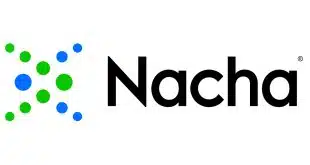Best known for its focus on restaurant merchant acquiring, Heartland Payment Systems Inc. is about to become a major force in acquiring card transactions for petroleum retailers and convenience stores thanks to its pending, $77.5 million acquisition of Alliance Data Systems Corp.'s Network Services unit. Alliance Data recently put that unit on the block in an effort to focus on what it says are its more profitable loyalty and private-label credit card operations (Digital Transactions News, April 21). Heartland, however, sees plenty of future profits and a diversification of its 155,000-merchant portfolio with the acquisition announced on Monday. Network Services has 71,000 merchant locations and generated $17 billion in bank card charge volume last year on 602 million transactions, according to Heartland executive chairman and chief executive Robert O. Carr. The unit, which has about $100 million in annualized revenues, also passed off another 2.6 billion transactions, including PIN-debit and electronic benefits transfer transactions, to other acquirers. Princeton, N.J.-based Heartland processed $51.9 billion in bank card charge volume last year. Restaurants generated some 39% of Heartland's transactions while the petroleum sector originated only 3%. With the Alliance Data unit, Heartland expects the restaurant sector to decline to 30% of transactions and petroleum to rise to 25%. Transactions from retailers will fall to 14% from last year's 18%. The acquisition carries some risk for Heartland because the portfolio consists of national and large regional convenience-store/gas-station chains that generate lower margins than the typical small and mid-sized Heartland merchant. “It's large merchants,” Heartland president and chief financial officer Robert H.B. Baldwin Jr. said at an analysts' conference call Monday morning. He did not identify any, but said they consist of “household names in the C-store and petroleum world.” The top 10 customers account for three-fourths of revenues, he said. Carr, however, says the deal puts Heartland solidly among a small group of processors serving the second-largest retail sector, and it diversifies Heartland's portfolio through merchants selling a “non-discretionary” product to consumers. It also gives Heartland more economies of scale thanks to a combined 4 billion in annualized transactions, and the ability to sell processing and related services to a new group of merchants, he added. “It's consistent with the mergers and acquisitions strategy we have articulated,” he said. Both he and Baldwin expect margins to rise as the unit is integrated with Heartland's systems. Brad Meeks, an equity analyst at Chicago-based Morningstar Inc., says Heartland's exposure to larger petroleum sellers who pay lower processing fees than smaller merchants is likely to be offset by a reduced share of transactions coming from the restaurant and retailing sectors that are more likely to retrench in a soft economy. “They had quite a lot of exposure to restaurants,” he says. “If anything, [this] kind of diversifies their portfolio a little bit, which is good.” Heartland's 1,200 mostly small current petroleum retailers happen to use Alliance Data's processing system. Heartland says it will finance the cash acquisition with cash on hand and bank borrowings. Carr expects the deal to close shortly after obtaining regulatory approvals, which he expects within a month. A spokesperson for Dallas-based Alliance Data would not comment about how many bidders Alliance had for the merchant unit. Alliance is still trying to sell its unit that provides customer service to utilities.
Check Also
Affirm Expands Its Credit Reporting to TransUnion
Buy now, pay later platform Affirm Holdings Inc. early Tuesday announced it will begin credit …





